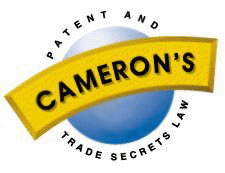
Innes v.
Short & Beal
citation(s): (1898), 15 R.P.C. 449, per Bigham, J..
 |
Innes v.
|
copyright 1997 Donald M. Cameron, Aird & Berlis
At p. 450
"It would be nonsense to say that a person is to be restrained from perfectly legitimate trade, namely, selling an article of commerce, because he happens to know when the buyer buys it from him that the buyer intends to put it to some improper purpose. The seller has nothing to do with the purpose to which the buyer is going to put it, and he cannot be said to infringe any patent because he simply knows that the purchaser is going to use it - that is to say, he expects it. You cannot know about a thing which has not yet happened; but he could not be said, in my opinion, to be infringing patent because he expects that the person who buys the article from him is going to use it in such a way as to infringe somebody else's patent. But I think it is a different case where the vendor himself asks and invites the purchaser to use the article so as to infringe somebody's patent, and I think, as a matter of fact, that Mr. Short did invite the persons who bought this article of commerce, powdered zinc from him, and hereby led them to infringe this patent at the time that he was selling the powdered zinc to them. That, I think, is a violation of the plaintiff's rights. There is no reasons whatever why Mr. Short should not sell powdered zinc, and he will not be in the wrong, though he may know or expect that the people who buy it fro him are going to use it in such a way as will amount to an infringement of Mr. Innes' patent rights. But he must not ask the people to use it in that way in order to induce them to buy his powdered zinc from him."
Return to:
Cameron's IT Law: Home Page; Index
Cameron's Canadian Patent & Trade Secrets Law: Home Page; Index